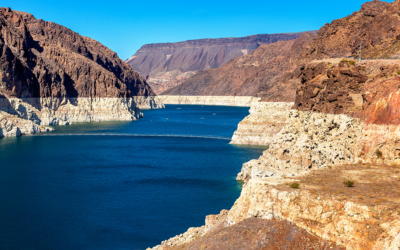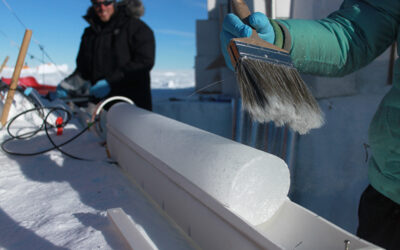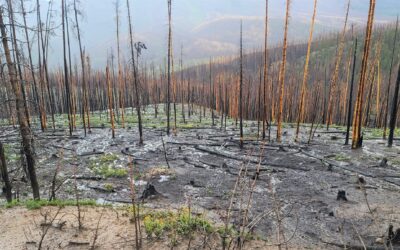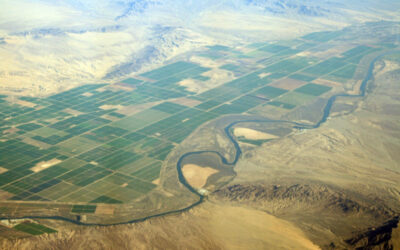The National Science Foundation (NSF) today announced a multi-institutional consortium – which includes UNLV and DRI – to confront the climate challenges facing the desert Southwest and spur economic development in the region.
DRI’s Hans Moosmuller on Antarctic Expedition to Investigate the Impacts of Pollution Near the South Pole
Hans Moosmuller, Ph.D., joins two Chilean scientists from the Center for Environmental Technologies (CETAM) of the Universidad Tecnica Federico Santa Maria on an expedition to Antarctica’s Unión Glacier, located just a thousand kilometers from the South Pole.
Volcanic Eruptions Triggered Historical Global Cooling
The new study, led by the School of Earth and Environmental Sciences at St Andrews with international colleagues from the Desert Research Institute and others in Switzerland and the USA, and published in The Proceedings of the National Academy of Sciences (PNAS) (6 November 2023), finds that massive volcanic eruptions caused historical global cooling.
DRI’s CNAP Project Selected as Regional Model for Building National Climate Adaptation
DRI is leading the way in building regional climate resiliency through the California-Nevada Adaptation Program, which will prepare communities for local-level action to address climate hazards including extreme heat and wildfire smoke, water scarcity, and coastal flooding.
Looking for Answers in a Warming World
DRI researchers are examining the potential for climate intervention techniques to help cool communities – and the planet
Study Explores Uncertainties in Flood Risk Estimates
In a new study, Guo Yu, Ph.D., examined the most common drivers (rainfall, snowmelt, and rain-on-snow events) of historic floods and investigated the impact of different flood types on the resulting flood frequencies.
New USDA Grant to Support Climate Resilience Planning in Indian Country
A new USDA grant will fund the “Native Climate” project, which will build relationships and narrow the climate justice gap in Native American communities of the Intermountain West.
DRI scientists investigate effectiveness of heat warnings along US-Mexico border
Featured research by DRI’s Kristin VanderMolen, Ben Hatchett, Erick Bandala, and Tamara Wall.
In July and August, daytime temperatures along parts of the US-Mexico border can reach as high as 120 degrees – more than 20 degrees above normal human body temperature. For agricultural workers and others who live and work in the region, exposure to these extreme high temperatures can result in serious health impacts including heat cramps, heat exhaustion, heat stroke, and heat-related death.







